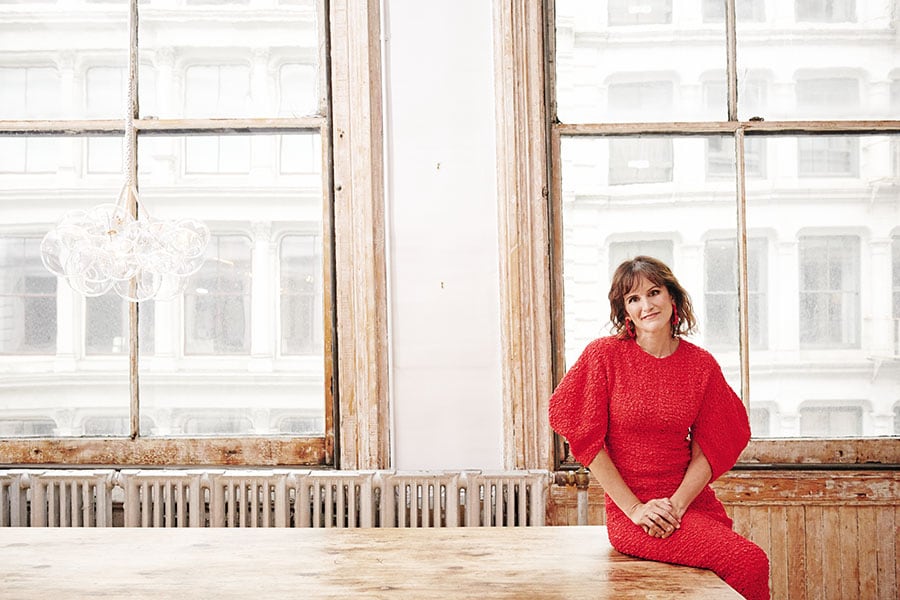
Cleaning up the seafood business, for double-digit returns
Amy Novogratz fought back from a brain tumor that could have killed her to build the world's largest sustainable aquaculture investment fund
 Amy Novogratz in her New York loft in August. A third of the capital for her Netherlands-based Aqua-Spark comes from US investors
Amy Novogratz in her New York loft in August. A third of the capital for her Netherlands-based Aqua-Spark comes from US investors
Image: Jamel Toppin for Forbes
Last year, Amy Novogratz gathered a seaweed farmer, an oyster-hatchery owner, the creator of a chip made from dehydrated salmon skins, a grocery buyer, a restaurateur and a reporter for a dinner party in her Manhattan loft. As her guests savoured arctic char poached in saffron with heirloom tomatoes and a pistachio pesto, she rose to explain the fish’s provenance: Matorka, a farm in Grindavík, Iceland, that raises its antibiotic-free fish on land in tanks using geothermal energy.
Back in 2016, when Novogratz’s Aqua-Spark fund invested $2.5 million in it, Matorka was producing just 50 tonnes of fish a year. By the time of that dinner party, it was selling 3,000 tonnes, including to celebrity chef Nobu Matsuhisa and US grocery delivery service FreshDirect. When Covid-19 hit and Matorka’s restaurant sales dried up, Aqua-Spark helped out with a $750,000 bridge loan. “The brand is back to a good place now,’’ reports Novogratz, who sees it growing to 6,000 tonnes by 2022—a “really good sweet spot where you can keep production controlled, know your market, know your customer, really trace everything”.
The 45-year-old Novogratz is herself in a sweet spot these days. A decade ago, she was diagnosed with a brain tumour doctors warned could kill her. A risky 20-hour surgery excised the tumour but left her with balance and mobility problems—on top of blindness in one eye from a childhood accident. Today, she and her husband, Mike Velings, 50, run Aqua-Spark, a Netherlands-based sustainable aquaculture fund that has attracted $148 million from 190 investors across 29 countries. They include ImpactAssets, a Bethesda, Maryland–based donor-advised fund (it enables individuals to park their contributions in profit-making impact investments before ultimately distributing the money to operating charities) and the Louis Dreyfus Company, the commodities giant controlled by billionaire Margarita Louis-Dreyfus. Novogratz herself has notable connections. Older sister Jacqueline is founder and CEO of pioneering impact-investing venture fund Acumen and is married to TED Talks head Chris Anderson. Big brother Michael is a former billionaire macro hedge-fund trader turned prominent crypto investor.
(This story appears in the 30 November, -0001 issue of Forbes India. To visit our Archives, click here.)







